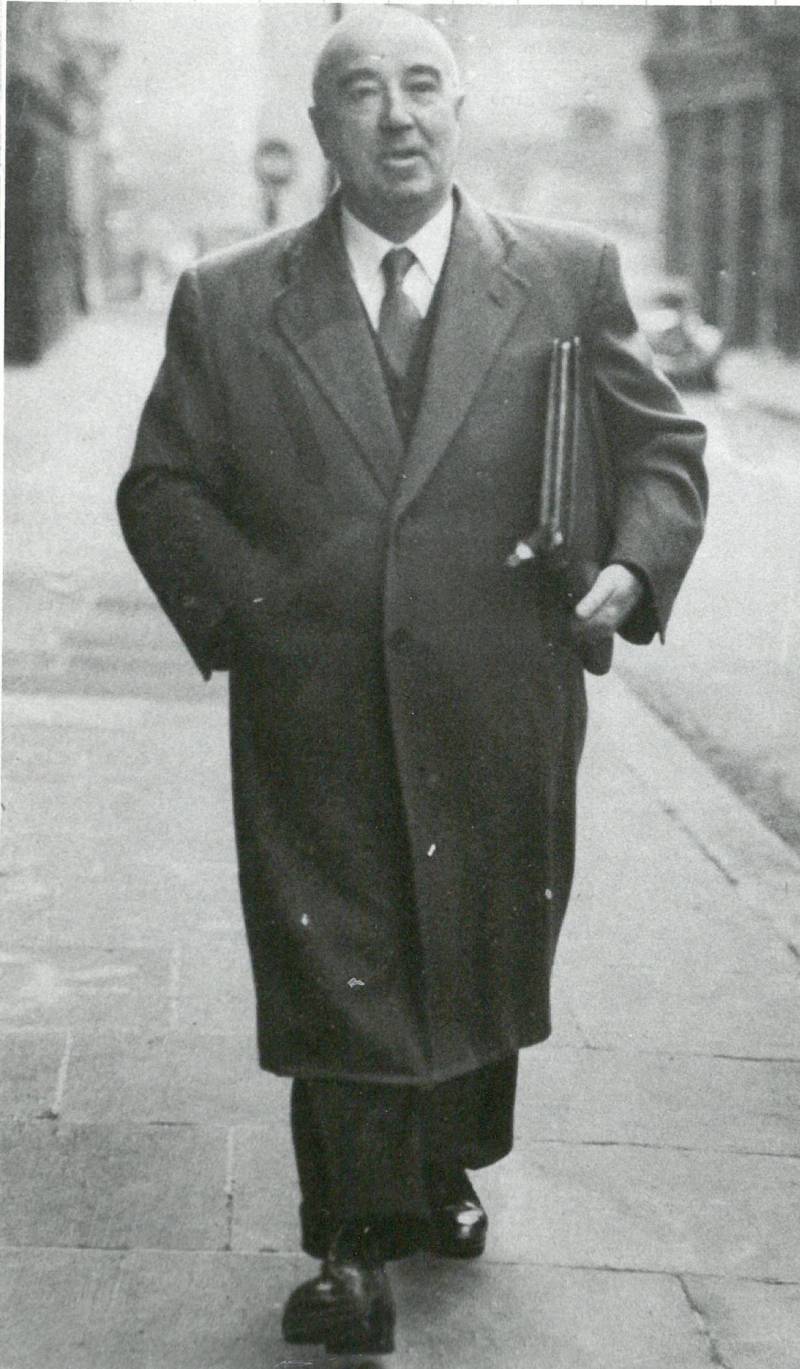Harry Pollitt was born in Droylsden in 1890 into a Socialist family with Chartist antecedents. He was introduced into local political life and into the Independent Labour Party (ILP) by his mother Mary who was a cotton spinner.
 At the age of 12 Harry worked half time at the Benson's Mill, then became full time when he finished his schooling the following year. He attended the Socialist Sunday School and the Openshaw Socialist Society and in his autobiography Serving my time he recalled having heard speakers such as Philip Snowden, Conrad Noel and Emmeline & Adela Pankhurst. He was influenced by the Clarion, the work of Robert Blatchford and Peter Kropotkin and he was a member of the Clarion Cycling Club, where he made some of his earliest speeches.
At the age of 12 Harry worked half time at the Benson's Mill, then became full time when he finished his schooling the following year. He attended the Socialist Sunday School and the Openshaw Socialist Society and in his autobiography Serving my time he recalled having heard speakers such as Philip Snowden, Conrad Noel and Emmeline & Adela Pankhurst. He was influenced by the Clarion, the work of Robert Blatchford and Peter Kropotkin and he was a member of the Clarion Cycling Club, where he made some of his earliest speeches.
In his working life, in 1905 he became an apprentice plater at the Gorton Tank Locomotive Works; an apprenticeship which ended in 1912. It was at Gorton Tank that he gained his first experience of trade union activity and he worked with the Gorton Trades Council and the Manchester & Salford Trades Council. By the age of 21 Harry was the Secretary of the Openshaw Socialist Society, which had recently voted to secede from the ILP and which joined the British Socialist Party (BSP) in 1912. In Serving my time Harry recollected with some pride that for his 21st birthday his mother presented him with Volume 1 of Capital.
In the First World War, he worked in Southampton, Barrow and Manchester before joining a Ship Repairer’s and living in Poplar, East London. He became active in the Boilermakers’ Society and formed the River Thames Stewards Movement which was important in the operation of the Hands off Russia campaign, culminating in the Jolly George incident, when arms destined for those fighting against the Soviet Union were stopped from leaving port. He also worked alongside Sylvia Pankhurst in the Workers’ Socialist Federation in the East End of London.
Through the Openshaw Branch of the BSP Harry became one of the founder members of the Communist Party of Great Britain (CPGB) in 1921. He worked closely with Tom Mann, with whom he visited the Soviet Union in 1922. He became involved in a number of campaigns, in particular the ‘Capture the Trades Councils’ movement in order to galvanise working class militancy. In the early 1920s he made further visits to the Soviet Union, was General Secretary of the National Minority Movement and was heavily involved in the Red International of Labour Unions (RILU) and the National Council of Trades Councils. In his role with the RILU he formed part of the guard of honour for Lenin whilst his body lay in state in the House of Unions in Moscow.
In 1925 he was involved in an incident when on the way to address a meeting in Liverpool. He was pulled from the train at Edge Hill station, driven into North Wales and then taken to Shrewsbury station the following day. The kidnappers, all members of the Liverpool branch of the British Fascists, were found not guilty of abducting Pollitt who the judge said had “obnoxious” views.
Later that year, and shortly after marrying Marjorie, a fellow activist, Harry was arrested and later imprisoned for 12 months on a charge of “Seditious Libel and inciting to commit breaches of the ‘Incitement to Mutiny Act 1797’”.

Harry Pollitt addressing the Mac Paps International Brigade volunteers in Spain - painting by Syd Booth in the Library collection
In 1929 he was elected General Secretary of the CPGB, a position he held until 1956, with the exception of a brief but critical interruption between 1939 and 1941. In 1939 Harry Pollitt, after many years of fighting fascism in Britain and lending support to those fighting for the Republicans in the Spanish Civil War, welcomed the British declaration of war against Germany. He described it as a ‘just war’ but owing to the signing of the Soviet-Nazi pact he was seen to be taking the wrong line. He was forced to resign but when Germany invaded the Soviet Union in 1941 the CPGB was urged to give full support to the war effort and he once more became General Secretary.
His resignation in 1956 was as a consequence of his declining health coupled with the denunciation of Stalin carried out by Khrushchev at the 20th Party Congress in February of that year. Harry Pollitt had remained loyal both to Stalin personally and the detailed instructions given to him from Moscow. He refused to accept the denunciation and the detail of the abuses revealed by Khrushchev. He resigned in May.
In November 1956 the Soviet Union invaded Hungary, which had been encouraged to liberalise political life as a result of the Khrushchev speech, and over 20,000 people were killed. Many members of the CPGB resigned and the party, led from its inception in 1921 by Harry Pollitt, was arguably never again a significant force in British political life. He died in 1960 on board a ship returning from Australia.
The Working Class Movement Library has a wealth of material to come in and read on Harry Pollitt. There are a number of biographies by John Mahon [Shelfmark B06] Kevin Morgan [Q16] and N.V. Matkovsky [B23] and the autobiography Serving My Time [B23]. There are nearly two hundred speeches, pamphlets and letters which can be found at ‘H71’ or in ‘CPGB – Boxes 6, 14, 18 & 23’.
Material on Harry Pollitt and the Spanish Civil War, including Pollitt visits Spain can be found in ‘Spain – Box 3.’ Works by Harry Pollitt on Tom Mann can be found in ‘Tom Mann – Box 1’ and ‘CPGB – Box 6.’ There are a large number of articles written by him in Labour Monthly at H61.
The Library also has a number of scrapbooks and artefacts, details of which can be found by searching the Library catalogue here.

